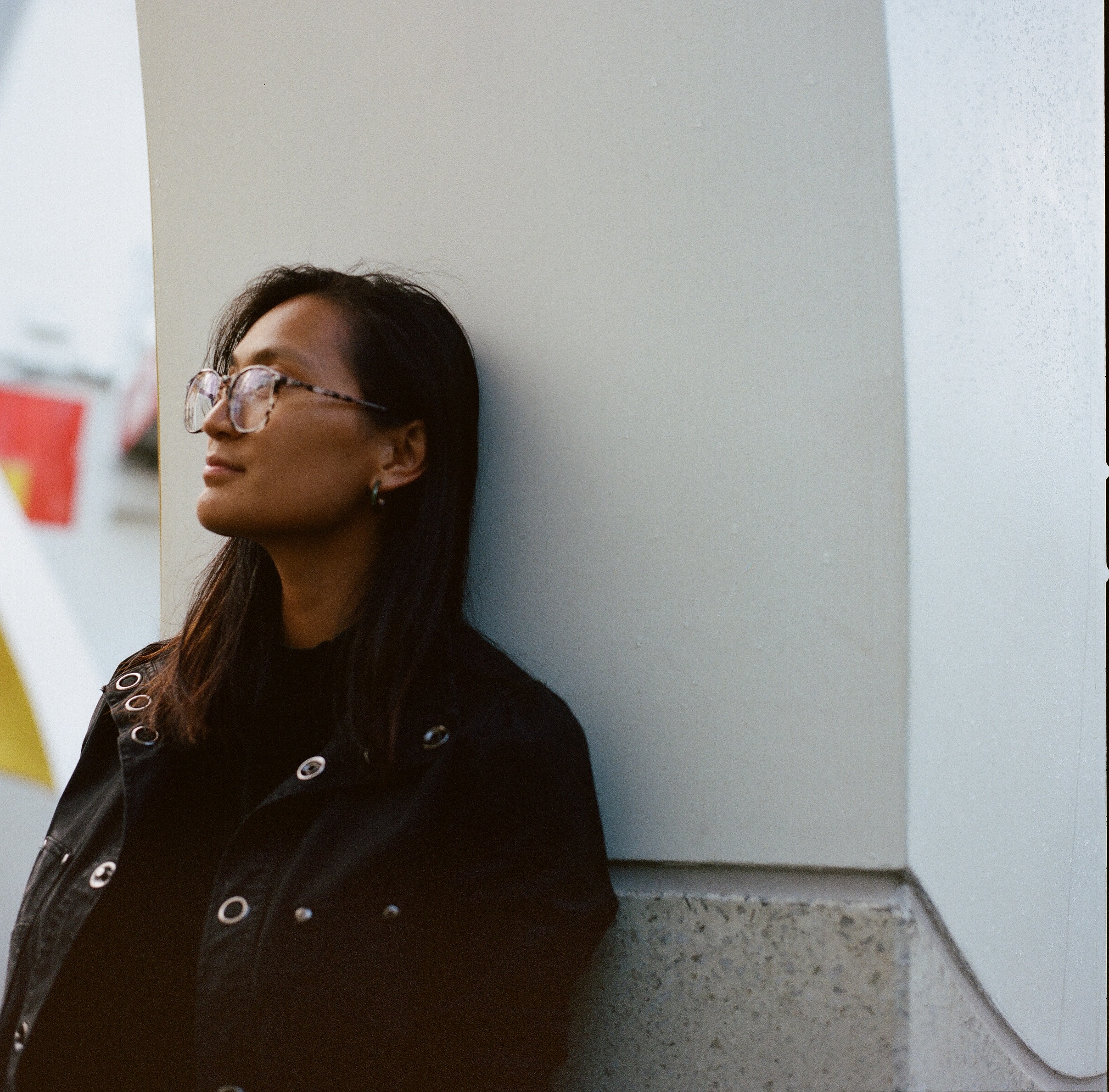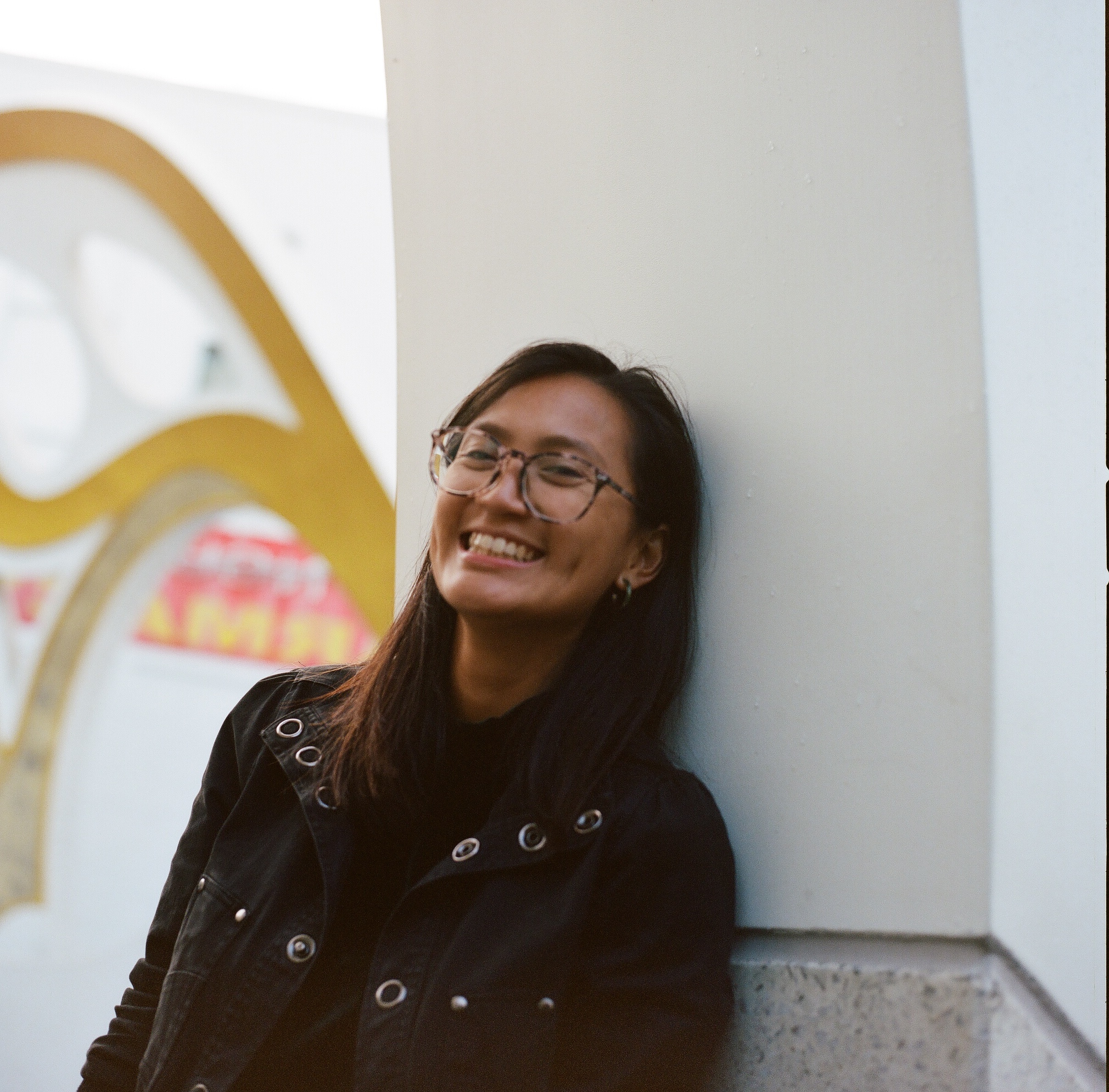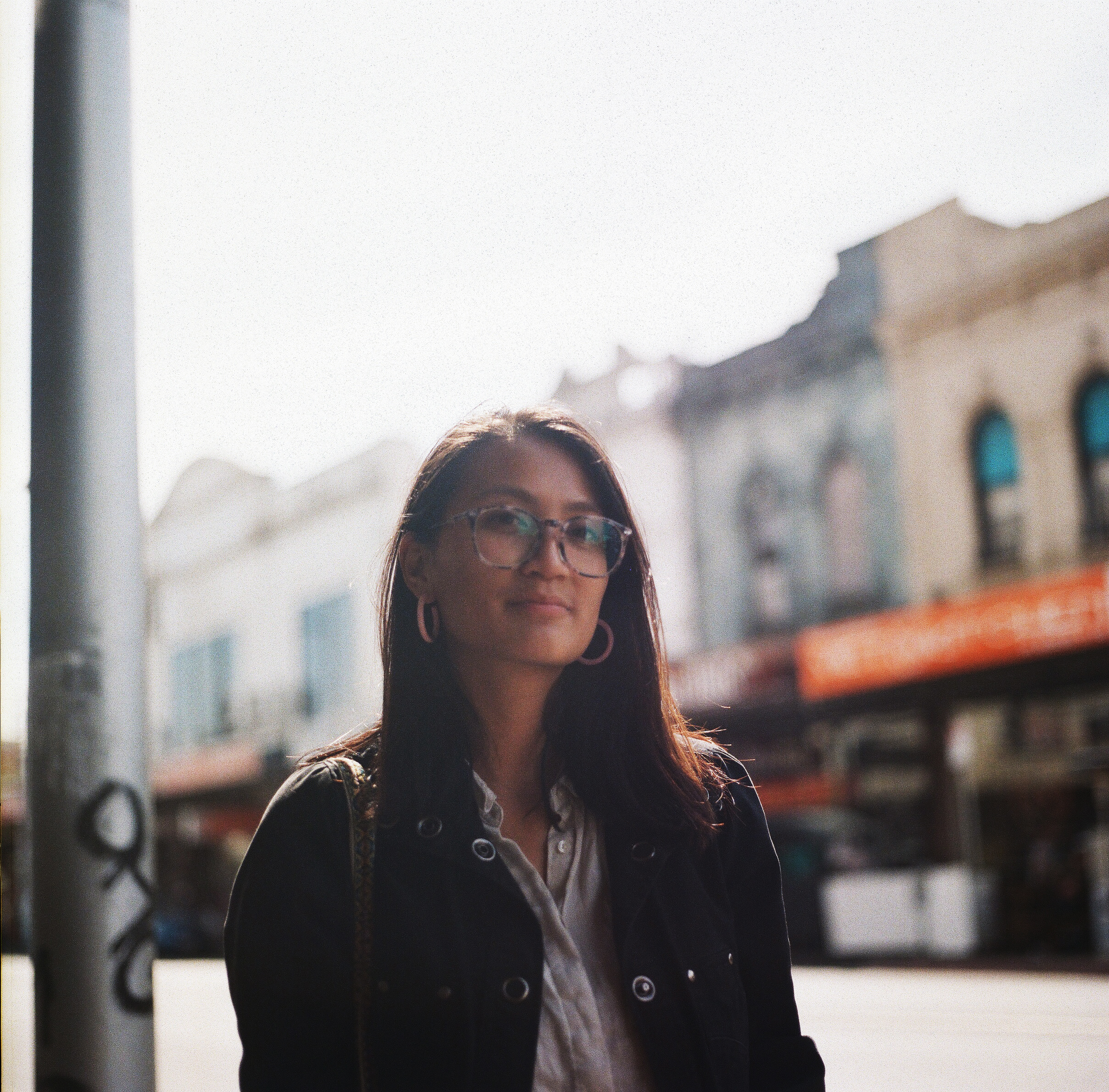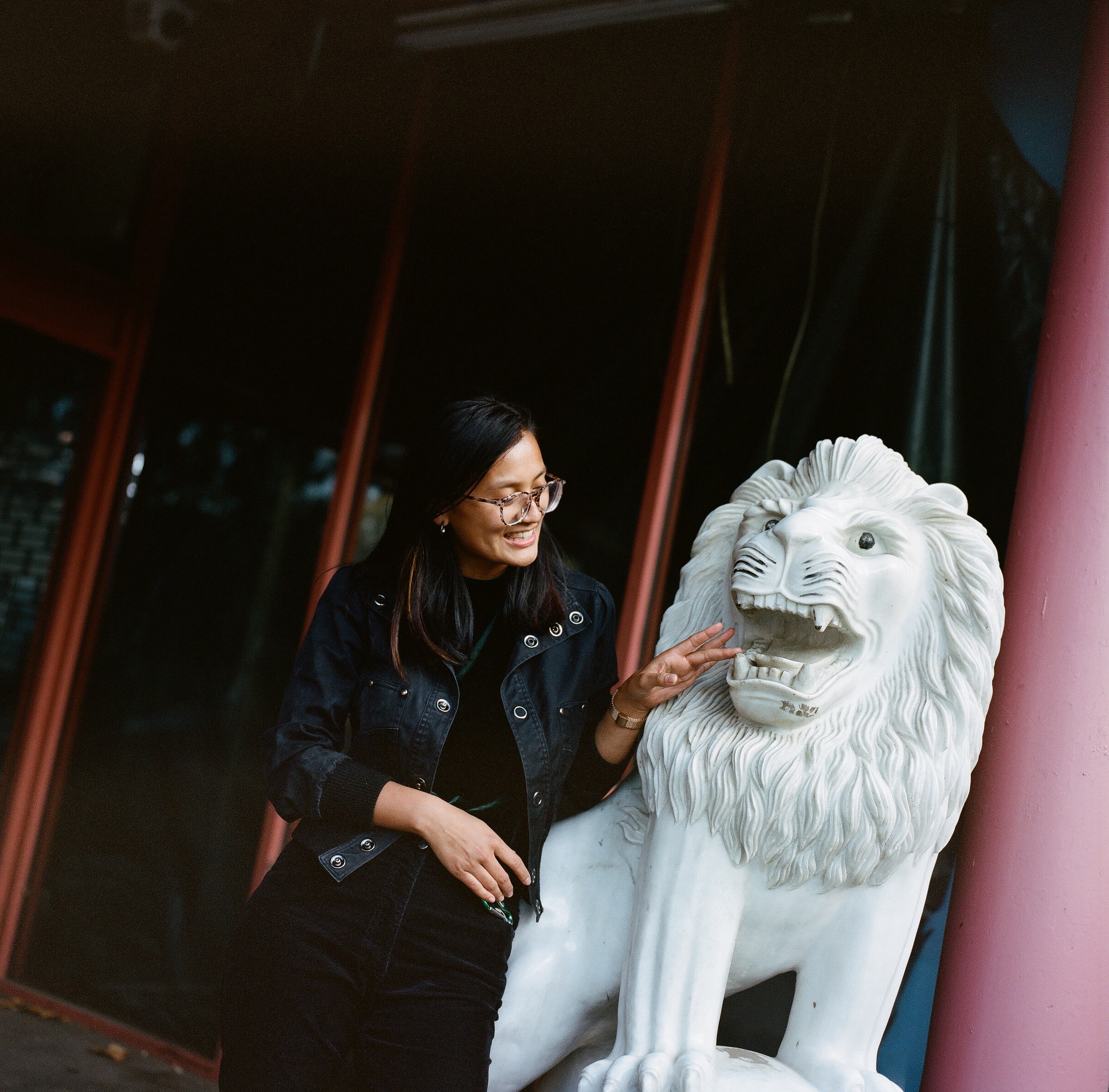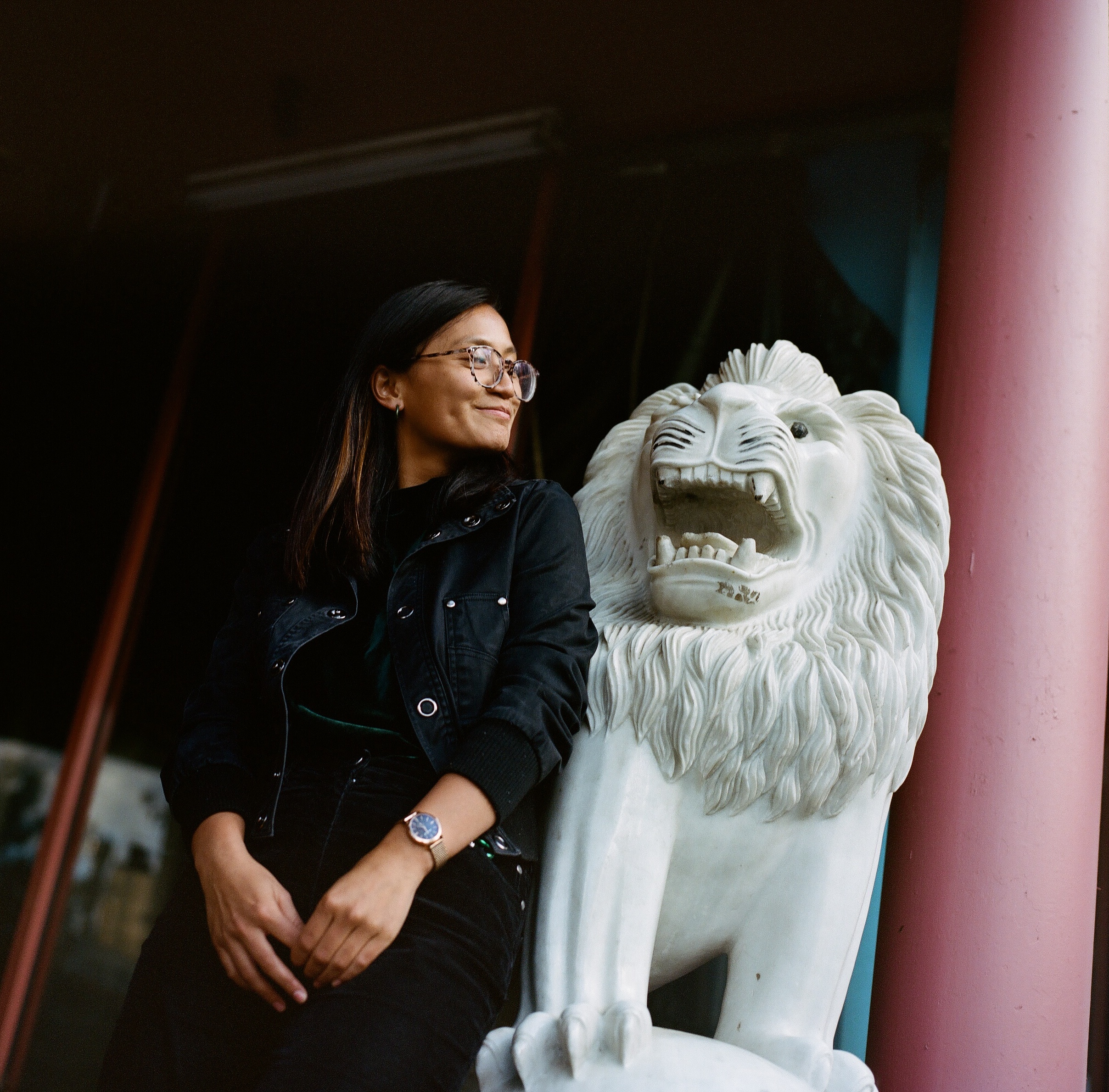Interview #8 — Thanh Hằng Phạm
by Leah Jing McIntosh & Linh Nguyen
Thanh Hằng Phạm is a Việt -lai artist, writer, and radio producer born in Narrm/Melbourne. For four years she broadcasted for Queering the Air on 3CR Community Radio. During that time she produced two award-nominated radio documentaries: Remotely Intimate (2016) and We Weren’t Born Yesterday (2015).
Under her writing persona Xen Nhà, she has contributed to Peril, Sula Collective, Hoax Zine, and produced her zine mình vol. i and ii. Thanh Hằng writes, speaks and performs on intimacy, relationships, skin and sensuality.
We sat down with Thanh Hằng in Footscray, and they spoke to us about the concept of 'home', the intimacy of radio and locating the queer diaspora.
Read an excerpt of mình vol.ii here.
Could you tell us the story behind Xen Nhà, your artist persona?
So, I travelled to Việt Nam on my own for the first time at the end of November 2015. I was interested to learn more about what queer meant in the context of Việt Nam, and how that relates to me living here in Australia.
I remember having a dream one night, when I had lived there for about a month, of the word ‘xen’. I started thinking about that word a lot, and also about my whole experience in Việt Nam, where I was feeling isolated and at times alienated. ‘Xen’ stems from a Greek word, Xenos, which means stranger, or alien—it’s also where we get the word xenophobia. When I looked at the word xenos (ξένος), I thought it was interesting that it has a diacritic similar to one in Vietnamese. So I thought I would piece together that word with a Vietnamese word, nhà, which means 'home'; I felt those two words combined reflected my experience of being a 'stranger at home’. That was my play on words to capture my experience of being in Việt Nam and trying to work out where I fit in the queer world there, which is completely different to the one here in Melbourne.
How do you sit within a place that is not your home, but you've been constructed to think that it should be your home? Perhaps internally we put pressure on ourselves to make a link to our parents' home country, ‘the homelands’, the ‘motherland’, when that link might not yet exist, or it might not be as strong as we had assumed. I have definitely felt that internal twisting of my gut to make that bond but I learnt that those need to be created on my own terms and at my own pace. Otherwise, the feeling of inadequacy and shame become entry points in which I try to make a connection and I want to elevate above that. I want to get past those hard feelings so I can reach something deeper and more powerful, like love.
I had thought it might refer to the opposite; the experience and the feeling of being a stranger at home in Australia. In terms of the construction of Asian-Australian identity, the hyphen confers such an Otherness, speaking to the particularities of existing within that hyphenated identity.
I definitely think the feeling of being ‘a stranger at home’ is transposable. I grew up in Australia with this experience as well, so it's very much a bicultural phenomenon.
I suppose it also problematises the concept of 'home', and the notion of 'homecomings', particularly in terms of belonging and of creating a 'home' for oneself. Where is home? Does 'home' refer to a specific location or place; is it about history and heritage; or does it mean people & community?
Yeah, I didn't think about this until a few years into doing radio work. I love doing radio because it's all about creating relationships, and you can create relationships with people from all over the world. I guess through my radio work I'm able to think about 'home' in a different sense, as comprising of how we relate and make connections with people.
I started doing radio at the beginning of 2013; I joined Queering the Air on 3CR community radio. There were some people who were broadcasting on there who I really respected, like Loretta Miauw, Arjun Rajkhowa and Lia Incognita, who I presented with for a couple of years.
To be honest, I hadn’t listened to podcasts or radio much before I started doing Queering the Air. But, hearing about this amazing queer show that had so many brilliant people of colour involved, I was interested, and I liked the idea of working in a collective. What I find interesting isn’t necessarily what's broadcasted in the air, but the moments in between, when you're playing music and you're having a conversation. I really enjoy being able to get into this zone where, for instance, if I'm interviewing someone, we're creating a relationship together in the studio; in that regard, the studio or radio becomes a place of ‘home’. It's really nice; there’s this special bond between the person I'm talking to and myself.
I finished Queering the Air at the end of last year, and now there's a new collective of people running the show. I was really happy with the shows I was producing towards the end; one of my favourites was Sounding out Queer Skin & Sexuality.
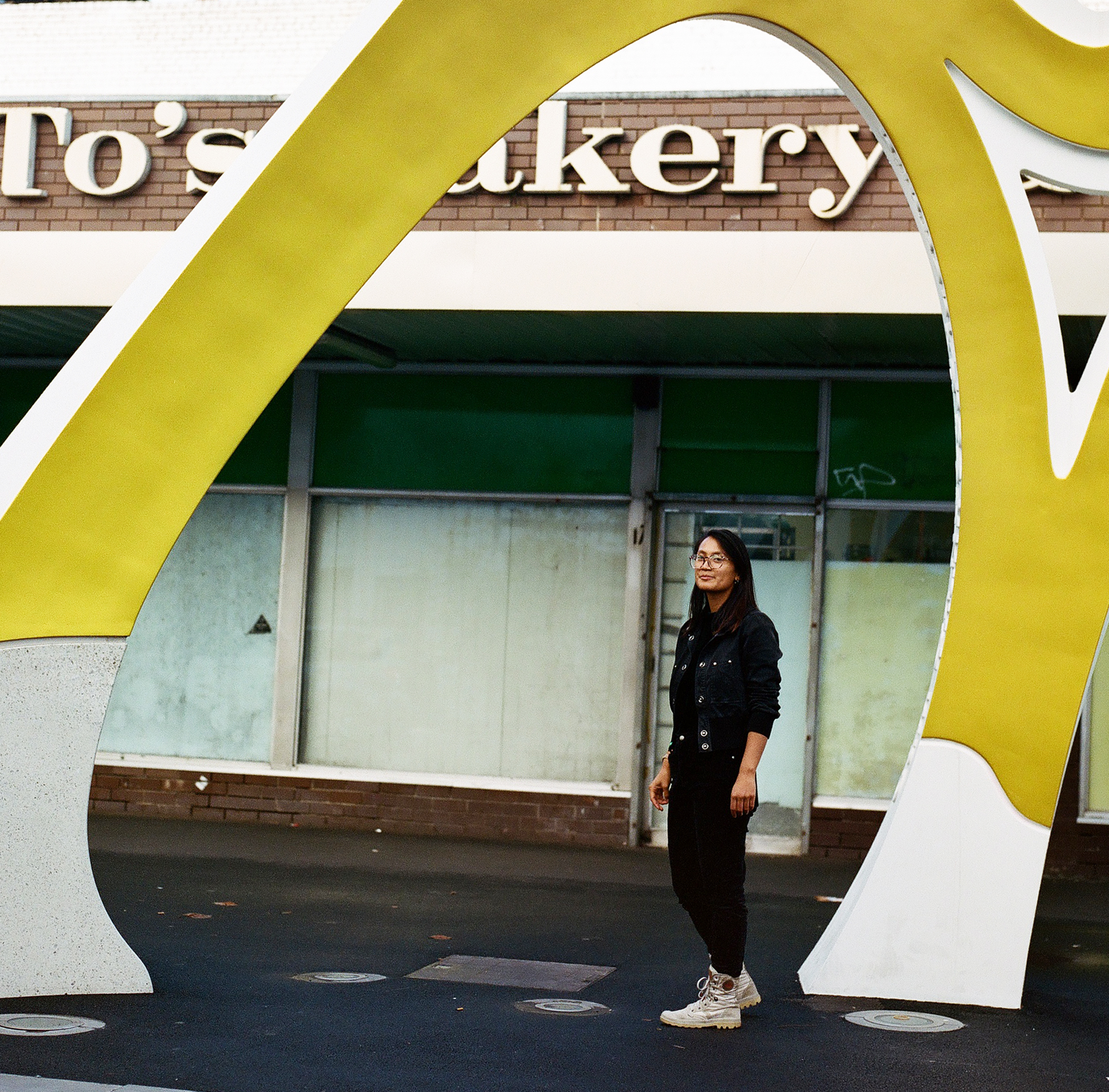
I loved that episode! There were two lines at the end of a poem you wrote for that show —entering your body as a home, and wanting to knock open the door from the inside— that really resonated.
Definitely. As people of colour, as queer people of colour, we go through so much shit —so, how do we access pleasure in our lives, and this doesn’t necessarily relate only to sexual pleasure, but any form of joy? We have to scuffle through all the pain before we can get there. Or, we push it aside because we can't confront that, we don't want to access it.
Perhaps because we experience different intersections and layers of oppression—such as racism, transphobia, etc., —we have to think of ourselves in terms of community. There's the idea of 'chosen family' which is embedded in different aspects of queer identities and queer communities of colour.
One of the reasons we started Liminal was to create a kind of community, a soft mapping of Asian-Australian community, connecting people through words and pictures.
I’ve connected with more people than I realise because of radio work. I look back on all the people that I've spoken to on air, and I feel that I've learnt a lot from everyone who I've spoken to via an interview format; you're able to access something about this person that, in another context, perhaps they wouldn't necessarily share with you.
Because of social media I've met more queer Vietnamese people in the diaspora from across the globe. I made a show with Queering the Air called 'We Weren't Born Yesterday' —it was a four part series about exploring LBGTIQ heritage in four different language communities; Vietnamese, Chinese, Arabic, and Hindi. In order to centre lived experience, I had to source individuals for that show, and at the time I didn't know many queer Vietnamese people. So, I put out a call out on social media and it was actually really difficult; I mostly found cis-gay men and I was thinking, there must be Vietnamese lesbians, and trans folks, somewhere out there — where are they? Eventually, after doing that project, I began meeting queer Vietnamese people who had actually discovered me through 'We Weren't Born Yesterday'. People on tinder and OKCupid would message me saying ‘I listened to your podcast!’ You know, I use those dating apps not necessarily to have sexual relationships with other people but to find them— and I found them! I wanted to change and challenge my idea of intimacy as well. Meeting other queer Viets in the diaspora is very important to me. Through my radio work I hope that people will be listening, and eventually find me and reach out.
Your show Remotely Intimate was so thought-provoking, in how you query and consider the experience of making connections across borders, finding people online, and creating an intimacy mediated by technology.
I started to notice that there were more QTPOCs connecting with people from around the world and having long-distance relationships — either romantic or friendships— and I thought, there's something going on here; what does this say about community, and home, and love? In this world where we are so porous with each other, I wanted to try and understand these forms of virtual connections that can be extremely intimate, perhaps more intimate than two people sitting together, across from each other. I found the people I interviewed for Remotely Intimate all have very different notions about love—I’m not necessarily talking about 'romantic' love, but familial love, love for friends, love for land, love for place, love for yourself.
One of the people on Remotely Intimate was my friend Alexis, a Filipino-Chinese person living in Seattle, who I had known for two years over the internet but had never met. In 2014 I matched with Alexis on OKCupid; we had an 88% match. One thing on their profile was that they were part of a QTPOC radio collective in Seattle called Lulu Nation.
So you were here in Melbourne doing a QTPOC radio show, and on the other side of the world you found someone who was doing exactly the same, in their corner of the globe.
Exactly. I listened to their show and I really liked it, and after we had been talking for awhile we began to do things like sending each other voice messages on whatsapp...we would send each other musings of our day, thoughts on race, being mixed, gender and so on. It wasn't a romantic or sexual relationship, it was a friendship, and the connection felt seamless. During the final stages of producing Remotely Intimate I was in the States, so I went to Seattle and met Alexis for the first time. It was a strange kind of homecoming to meet people I had ‘known’ for sometime on the internet.
You spoke before about trying to figure out your place within the queer Vietnamese community in Vietnam, and relating it to your experience living here in Melbourne. Could you talk to us more about your experience of this?
I guess in my early days I had a very unsettled feeling of being in the queer community here in Melbourne; of it being very white, and not knowing my place. I find the queer community in Australia to be very fixated on issues of identity, and I also feel that the general mainstream queer community it is very individualistic. I think the identity-crisis in queer individualism is very much tied to living on stolen Aboriginal land here in Narrm/Melbourne. That is something that needs serious unpacking because it can turn into an act of colonial violence. From what I understood and experienced, in Việt Nam, identity politics isn't the focus of what queer people are talking about, and that's not where the activism is rooted in—those kind of discussions unfold very differently there, and that shapes how you experience queerness as well.
I’ve been thinking more about how we understand gender and sexuality across time. Sometimes binaries are the norm for understanding gender and sexuality, but you may also find a three-gender system used in sub-sects of the queer community. Dr. Natalie Newton has done research on the B,SB,Fem gender system used in the les (lesbian) community in Việt Nam. I find comfort in framing my gender as relational to the people I love in my life. I see my gender as malleable but always in relation to something else. In this sense, I’m probably very Vietnamese.
You're a radio producer, a performer, a writer, a poet, and a zine maker. What is your relationship between each mode of articulation? You move so fluidly between different mediums.
I guess I started off in zines; I like the materiality of the zine, and I've always enjoyed writing. Zines are also also very easily disseminated, so people can connect with you in different ways.
I wrote mình zine vol.1 in 2014. The word mình in Vietnamese means 'I' and it also means 'we'. It also refers to the Vietnamese body from the shoulder to the tailbone; it’s the trunk of your body, where the core isn’t your heart but your stomach. There are all these words in Vietnamese which relate to the stomach, and the body itself. I decided to call the zine mình because it was about mapping the elasticity of gender, the body, and sexuality—those kinds of things—not in an individualistic sense, but as a collective experience.
In terms of how I move through different mediums, I probably see all of my artistic engagements (writing, making zines, doing radio) arising from a similar impulse; trying to listen to my body, whilst also thinking think about the ways I can relate people. I usually write about relations, and relating, and intimacy. I think that an act of performance—or the act of writing a zine, or talking on radio— is an act of relation; it might resonate with people, or it might not, but I do these things because I want, and I hope, that people will relate to it.
It’s the same with radio; I'm very much interested in the idea of deep listening and of collective listening. So when you hear someone's voice in your ear —you know, you can listen to my radio shows when you're walking down the street, or wherever— you can be in the car, you can be like, in the bathroom. I love that idea that you can be anywhere, but you can also be tuning into something that can make you feel that you are relating to the person.
In your piece 'Swallowing Silence', you write, 'swallowing silence is a perilous act but it has been necessary for me to understand the depth of my body. It has been, and will continue to be, a necessary passage for me to remember my strength within...' Is your act of creating—through zines, radio, poems, writing— a reaction to the silence you outline in this piece?
I really like that interpretation. I've never thought about it like that. I'm definitely doing all of these things because I want to be heard, in some sense. In so many different situations — for instance, being asked to moderate a panel, or be visible—there's always a point where I feel I have to negotiate myself, and it's tiring to constantly do that. It's exhausting to feel that you have to prove yourself. But I feel that a lot of women of colour, or people of colour generally, go through that, where they feel that they have to amplify themselves to the point of exhaustion.
It's interesting to consider: what if we construct spaces where we're creating silence ourselves rather than having that silence thrust upon us —what would that mean? It's completely different to have someone impose a silence on you than creating a form of silence yourself or with someone else, or within a community; a silence that is safe, where you can feel that you can be who you are.
When did you start writing poetry, and when will you finally publish a chapbook? The world needs one.
That's so nice! No one ever asks me about my poetry. I'm really inspired by Jackie Wang, she's a poet in the States; she's a POC as well. Her poetry really inspires me in that she writes a lot about relationships. There's a great poem called 'the fragility of friendships and everything else' (link to video), I highly recommend it, or 2x2, which is a reading.
I guess ever since mình zine, I've been writing poetry, but I've only really enjoyed —or felt like they were my poems — quite recently, so it's very new. I think probably just around the time that Xen Nhà manifested in my heart.
I'm very much interested in writing poems, particularly writing them with a soundtrack. So in my poem ‘When I loosened my grip’ I got sound recordings from Chợ Bến Thành, a big market in Saigon, Việt Nam. So I walked through the market & I had my recorder on & I just captured things that people would say to me. It was interesting, because they would never see me as Vietnamese, people would say 'hello Madam'.
I really like making sound-poems because it creates an atmosphere, or a location around the work. I suppose it’s similar to my radio work in a sense; people can tune into it and feel like they are there, visualising with the sounds whatever location I am trying to set. I feel it’s a way of relating to people not just through words but through non-verbal sounds.
I would like to make an audio-book one day; that would be a dream. I would also love to commission people to make an artwork for my poems —that's just some of the things I'm thinking about.
Who do you draw inspiration from?
Fariha Róisín is a writer I respect and draw inspiration from. For radio, I have a lot of respect for the late 3CR radio presenter Lisa Bellear and her approach to radio, feminism and creativity. Areej Nur (Women on the Line) and Namila Benson are also both radio presenters in Melbourne that you should tune into.
Do you have any advice for younger writers?
For younger writers/radio presenters/artists who are queer women of colour I would say, don’t rule yourself out below the margin. Make yourself the center of the page and have your community of those who support your craft close to you because they will help amplify what you want to say.
What are you listening to?
Radio shows The Heart and All The Best, and random music stations on Radio Garden.
How do you practice self-care?
Lately, self-care looks like going to Maribyrnong River for a nice long walk.
What does being Asian-Australian mean to you?
It means to completely shake and rattle the centre of our geographical imagination, so that when we talk of being Asian-Australian we are encompassing not only East Asians but also Central Asians, South Asians, West Asians, Pacific Islanders, mixed-race Asians, Black Asians and Indigenous Asians.
Find out more
Photographs by Leah Jing McIntosh



